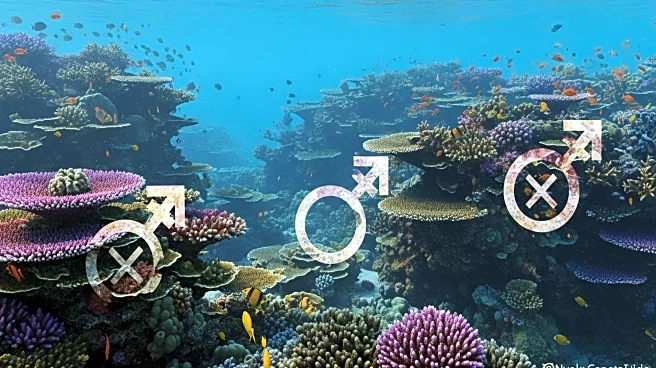What is the story about?
What's Happening?
The UN Ocean Conference emphasizes the critical role oceans play in regulating global temperature, providing essential resources, and supporting international trade. Oceans are vital for absorbing greenhouse gases and generating oxygen, making them key allies in combating climate change. The conference also highlights the importance of inclusive leadership and gender equality in achieving sustainable development goals. The maritime industry is urged to lead environmental protection efforts, with a focus on diversity and innovation to drive meaningful change.
Why It's Important?
Oceans are integral to global climate stability and economic activities, impacting billions of lives. The conference underscores the need for international cooperation to protect marine ecosystems from over-exploitation and pollution. By promoting gender equality and inclusive leadership, the UN aims to foster diverse perspectives that can lead to innovative solutions for environmental challenges. The shipping industry, as a major ocean user, is positioned to spearhead efforts in reducing emissions and adopting sustainable practices, which are crucial for long-term ecological and economic health.
What's Next?
The International Maritime Organization (IMO) is expected to adopt the Net-Zero Framework, advancing decarbonization goals for shipping. This regulatory push will require collaboration across sectors to implement sustainable practices. The conference calls for coastal and island nations to be actively involved in decision-making processes, leveraging local knowledge for effective ocean conservation strategies. The maritime industry is encouraged to continue its commitment to environmental stewardship, with initiatives like WISTA International's Environmental Committee leading the way.
Beyond the Headlines
The conference highlights the ethical dimension of ocean conservation, linking it to social equity and gender empowerment. By valuing diversity and challenging norms, the maritime sector can drive cultural change that supports sustainable development. The focus on inclusive leadership aims to create models for others to emulate, fostering a global movement towards environmental sustainability. The involvement of under-represented groups in decision-making processes is seen as crucial for achieving comprehensive and effective conservation outcomes.
















